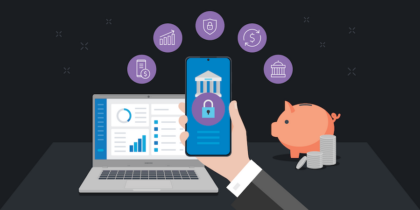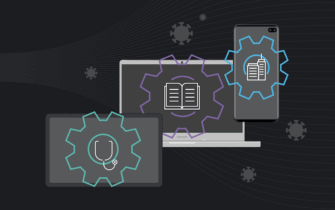Editor’s Note: This conversation is part of our ongoing “Future State Of” series. It has been edited for length and clarity.
The world continues to go through a digital transformation, and some businesses are keeping up with the changes better than others. The current crisis is putting pressure on all businesses to be proactive about how they can best digitally optimize their operations and business models. Taher Behbehani, GM and SVP of Samsung B2B, sits down with Don Callahan, an internationally respected leader in both the financial services and technology industries. The former Global Head of Operations and Technology at Citigroup, Callahan now serves as Executive Chairman of TIME. Their conversation addressed the acceleration of digital transformation across different industries in the wake of the COVID-19 pandemic and how these changes are impacting organizations’ overall operations and structures.
Taher Behbehani: Hi Don, and thanks so much for talking with me today. Given the crisis we are all going through, what are you seeing that is top of mind for major business leaders?
Don Callahan: Number one is the wellness of their own people. How can they make sure that their own people are in good shape while they all spend a tremendous amount of time shifting to a new work model?
Second, they want to make sure they can continue to give the service level they need to for their client base.
And then third is risk management and the interruption to their overall business. And when I say their overall business, it is what’s happening to their supply, what’s happening to the demand and what they need to change. I think that the whole concept of risk has been brought forward as people are recognizing we have another black swan upon us. The last black swan hit us with the financial crisis, and this black swan is a health crisis, and I think leaders are now looking at what will be the next black swan.
TB: Do you see any gaps in what these leaders are thinking about that they really need to address?
DC: One area that some people may be overlooking is at the geopolitical level. And I would say that’s one of the most important things leaders should pay a lot of attention to. If you just look at what’s happening to the city-state of Hong Kong in the middle of all of this, you see the potential redefinition of a city.
Clearly, one of the things you see every day from the Johns Hopkins COVID map is that the world is interconnected in a way no one ever thought before. We had it defined for us by the spread of the disease, and now we’re recognizing that we need to work at a truly global level if we’re going to be effective.
I happen to believe that the real axis of power has been redefined by truly global companies. And companies now need to think about how they are operating. Take a look at Samsung. It is, in my mind, one of the great global companies. So it is wondering, how does it work in Seoul, but also how does it work in New Jersey? And then how does it work in the Philippines? And then what does this mean? There’s a real business opportunity in front of organizations like Samsung to surge forward.
TB: What are some of the hard lessons that companies have learned through these incredibly trying experiences?
DC: The number one lesson that many leaders have learned is that the organizations that they have built over the last 50 years are antiquated and not necessarily correctly designed for the future state.
They believed that their brick-and-mortar, headquarter-centric organizations were the right organization. They believed in their org structures, which were pyramid in design. And now, they’re recognizing that they’ve got to redesign their collaborative capabilities. And there’s a real opportunity in my mind for them to rethink their business model. What we’re going to find is a real shaking up of the corporate structure. And I think we’re only at the very beginning of it.
TB: What are your thoughts about the changes coming to education and the impact that will have on the future workforce?
DC: The big change is that people are going to realize it’s not four years of college and done. That’s not going to be sufficient for being able to navigate the future. Because the future’s going to come at us so fast that simply saying I’ve got my business degree and now I’m done is not going to cut it. You’re going to have to stay engaged in every element of the learning curve. I think all of us must make a serious commitment to becoming lifelong learners.
TB: Do you see similarly big changes in media?
DC: In media, the print world has been declining at 12 percent to 15 percent for about the last five years. Now what you’re finding is that people are seeking information episodically, and all you have to do is Google it.
TB: As you look at organizations, what positions are going to be less important and what roles will be more important?
DC: One of the most important people in an organization will be the chief strategist, the person who does scenario analysis. A CEO is going to say, “Frame for me the possibilities of outcomes in the next five years, and let’s put them into quadrants that are compass based. Northeast, southwest, etc. And now let me think of the business plans that work in each one of these. But let me make sure I have the ability to move from my northeast to my southwest, and I’m not out of business.”
I also think that for big companies, the chief procurement officer becomes a really big deal. In the future state of work, you’re going to have to be able to go from concept into the market with a product really fast, whether it’s a platform or a product.
TB: Thanks so much Don. This has been really insightful and helpful.
Explore how Samsung’s remote work solutions can support your next technology-driven corporate structure. And keep up to date with the latest announcements and insights by following Taher Behbehani on Twitter.







